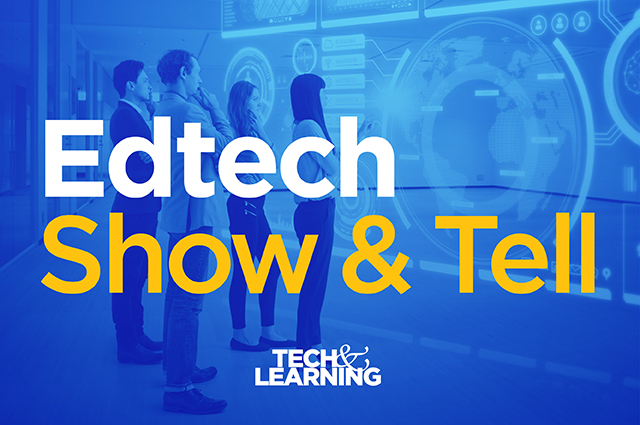When Educators Talk, You Should Listen: A Report from the EdExec Summit
This year's Tech & Learning EdExec Summit was all about making sure the educator's voice was heard.
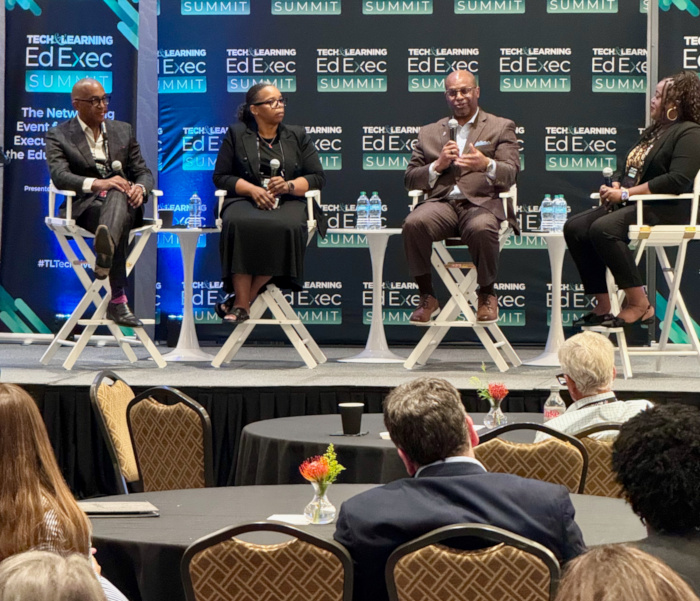
Tools and ideas to transform education. Sign up below.
You are now subscribed
Your newsletter sign-up was successful
At this year's Tech & Learning EdExec Summit, our mission was to make sure the customer's voice was heard. We believe that when teachers and district leaders speak, you should listen.
District leaders didn't hold back. They shared their unfiltered realities, not to be unkind, but to help company executives understand what it takes to build long-term partnerships.
Here are some of the key takeaways from those conversations.
Funding in Flux
Of course, federal funding cuts were a hot topic, but the mood among district leaders was surprisingly optimistic. Our industry has weathered pandemics and economic downturns, and this new challenge can be another opportunity for innovation.
According to Joe Phillips, Chief Information and Technology Officer at Fulton County Schools in Georgia, "Losing funds is actually making collaboration more possible. We have more room to innovate and become more efficient at the district level." He noted that their goal is to move past the hype of AI and focus on practical applications of technology within the district.
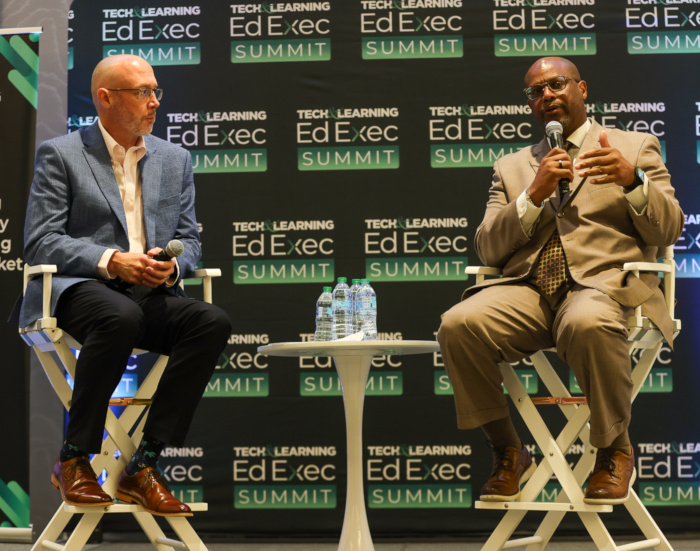
Dana Bedden, Executive Director and CEO of Village Charter School in New Jersey, echoed this sentiment, emphasizing the need for a different mindset. "I need to focus on: where do I get the biggest bang for the buck? Are we getting the ROI on our investments?" He pointed to solutions such as ClassLink, which provide metrics on usage and investment return. His advice to companies: "If you make a sale but don't help implement the product, you’ll be out of a job."
From Vendor to Partner
A dominant theme throughout the summit was the need for companies to transition from being simple vendors to being true partners. This means building a relationship that extends far beyond the initial sale.
Tools and ideas to transform education. Sign up below.
Ijeoma Johnson, Instructional Technology Coordinator at Newton County Schools in Georgia, offered a powerful tip for longevity: "Products that are integrated into instruction are harder to eliminate."
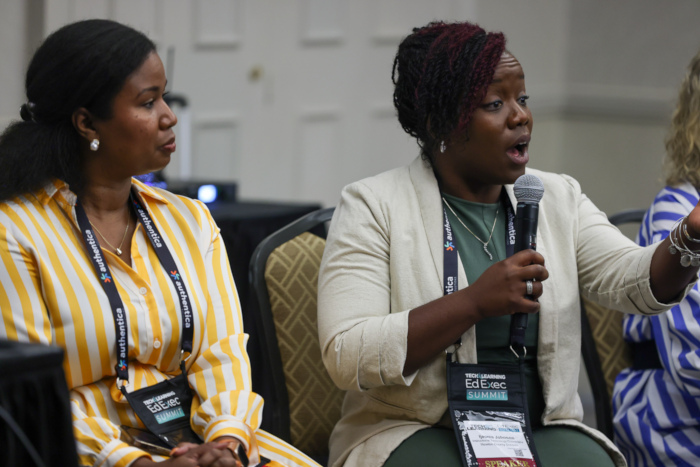
Other educators shared specific advice:
- Jennifer Hall, Digital Learning Specialist at Atlanta Public Schools, advised, “Focus on the task, not the tool.”
- Mike Afdahl, Coordinator of Technology Services at Northwest Georgia RESA, emphasized that companies "have to show the efficacy of their products."
- Terri Webb, Manager III of Instructional Technology at Georgia’s DeKalb County School District, urged companies to "have a roadmap that outlines what the district partnership is." She noted that companies need to “forward-think” this plan and anticipate future needs such as tech refreshes.
- Dana Bedden stressed the importance of trust: "If you rush to make a sale, you're going to lose me. If you say you’re going to do something, you need to put this in the contract.”
- Andrea Wright, District STEM Coordinator at DeKalb County School District, encouraged a student-centered approach, saying, "Reiterate the partnership. Come to career day. Judge the science fair. Think about the whole child."
- Ashley Barnett, Instructional Technology Specialist at DeKalb County School District, added, "Keep the students first when you're marketing. How are you personalizing your product for the specific district needs?"
“If the sales person I built a relationship with walks away after the sale and hands us over to a customer service rep I’ve never met, that’s insulting,” said Newton County Schools’ Jennifer Williams.
Williams highlighted the difference between a “vendor” and a “partner” with a powerful example. After YouTube blocked access for users under 18, her inbox was flooded with teacher and parent emails. While this issue had nothing to do with their products, companies such as Instructure and Nearpod reached out proactively to provide solutions. Williams praised the companies for noticing that she needed help, and providing it – without being asked and adding one more thing to her plate.
How to Connect with Educators
Since 55% of respondents in a recent Tech & Learning survey said they learn about products from teachers and peers, building a strong reputation across the district is crucial. District leaders at the summit shared how they discover new technology:
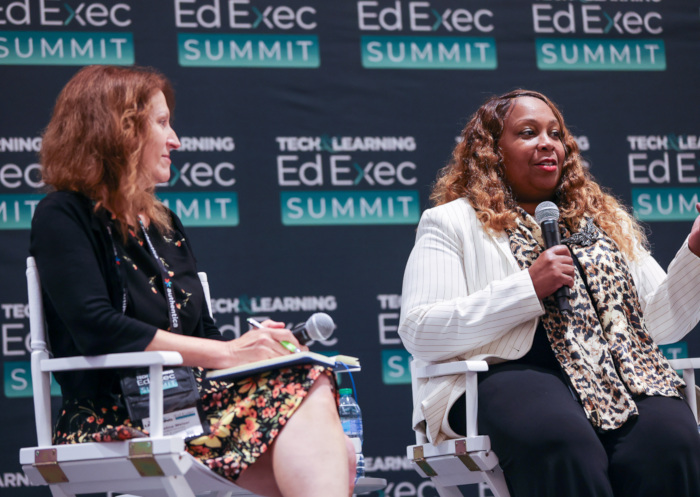
- Krynica Drake, Digital Learning Specialist at Atlanta Public Schools, mentioned conferences and talking to other districts as her preferred methods.
- Brandy Washington, District Special Education Director at Houston ISD, said she learns about new tech from "Education Service Centers and, believe it or not, TikTok — people are honest there."
- Jennifer Hall said she talks to "teachers, librarians, and principals to see what gaps they have that I need to fill."
Actionable Sales Tips from Educators
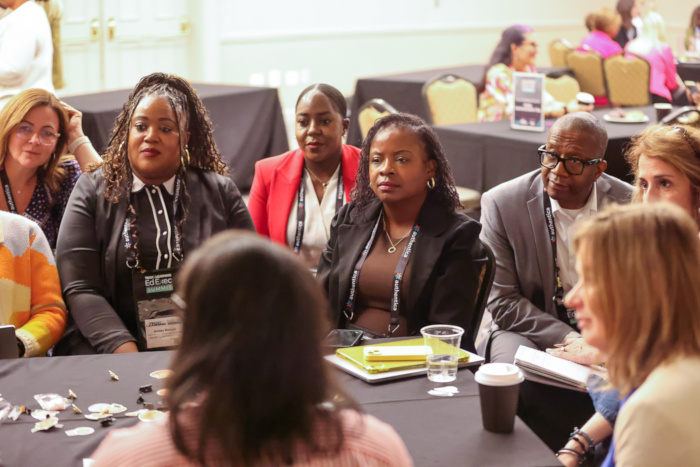
Beyond making a great product, the educators at the EdExec Summit provided clear advice on what makes a successful sales approach.
- Be a long-term partner. "If you aren't showing up after the transaction, consider it a one-time sale,” said Joe Phillips.
- Keep students at the forefront. Krynica Drake urged companies to remember "that there are students that are beyond the contract," to which Jennifer Hall added, "We get the sales part, but everything educators do is for students, so keeping it student centered is key.”
- Involve educators in your outreach. "Don't pigeonhole educators into customer success," advised Brandy Washington.
- Provide a meaningful pilot program. Terri Webb said, "Vendors often lead with the cost per student, but we need to know if your product benefits the students." She stressed that a 6-month pilot is not enough time to collect the data they need, and to instead, "think of this relationship as 'partnerships.' We’re helping you improve your product."
- Be patient. Dana Bedden reminded vendors that purchasing cycles in education are long. "I’m willing to take strategic risks, but I am more guarded now," he said. "People who come to us late to the budget cycle need to understand: we might buy, but we have to wait."
In a separate discussion, Keith Osburn, Chief Information Officer and Deputy Superintendent of Technology Services for the Georgia Department of Education, noted a critical observation: many vendors, especially startups, are unaware of organizations that drive data standardization and interoperability in K–12 education, such as the Ed-Fi Alliance and 1EdTech. Understanding these standards, he said, "translates into more efficient build/coding, a reduction in project build times, and certainly helps answer the need for ensuring efficacy of their products."
The Power of Leadership
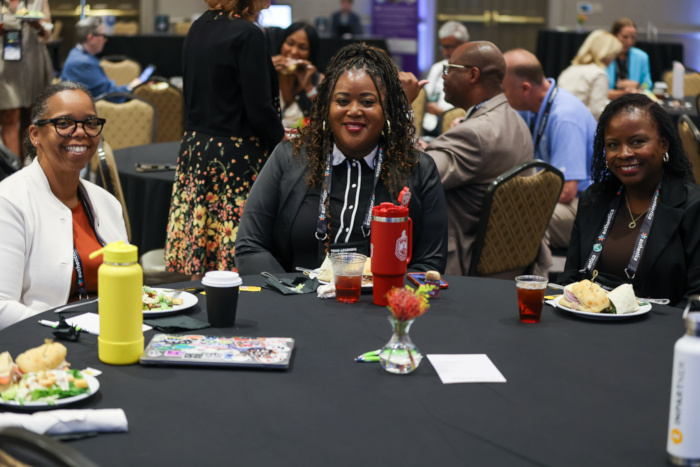
A great leader is defined when the leader is not in the room.
In the end, whether you are a district or industry leader, success comes down to good leadership.
“A great leader is defined when the leader is not in the room,” says Terri Webb. “If your tool is a great tool, what does it look like when you’re not there?” She also applies this philosophy to leading her district team. “I love to be in the background to watch my team grow and ‘lead in the space in which you are given’. Go in and find the silver linings. Pull out the greatness in your people.”
I saw this philosophy in practice at the EdExec Summit by the attendees: they listened, they asked questions, and they reflected on the wisdom shared throughout the conference.
“The setting and size of the conference was ideal for really getting to know people,” Derek Luebbe of HuddleUp Learning said. “I loved the diversity of profiles to help us look at issues through various roles in the room. It takes this sort of dialogue to build shared understanding.
Want to learn more? Find other conference highlights and photos on the Tech & Learning EdExec Summit website and be sure to sign up for news about the 2026 EdExec Summit.
Christine Weiser is the Content and Brand Director for Tech & Learning, and has been with the company since 2008. She has reported on education for most of her career, working at Scholastic and Gale Publishing before joining Tech & Learning. Christine is also an author and musician, and lives in Philadelphia with her husband and son.
